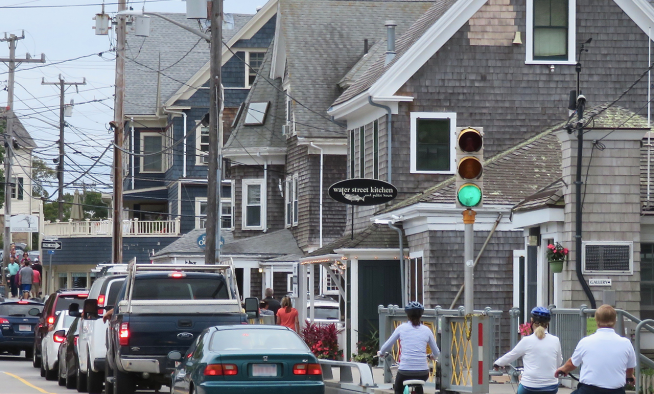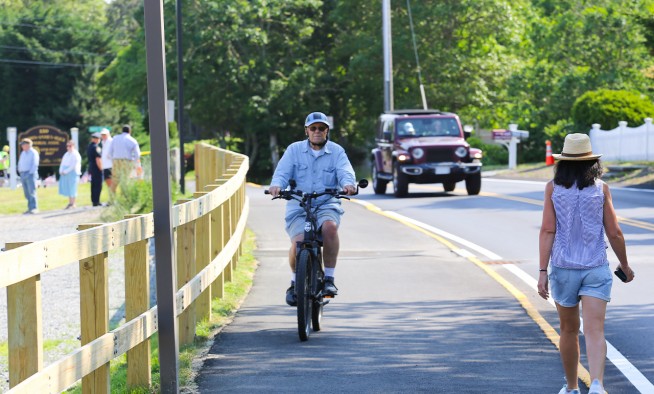Traffic and parking study launched in Provincetown
BLUETOAD TECHNOLOGY TO HELP CHART TRAVEL
The amount of commercial and recreational activity in the relatively small area of Provincetown is unique on Cape Cod and presents both challenges and opportunities. The narrow streets and limited parking currently provide significant challenges to motorists and bicyclist.
With close proximity to air, ferry and bus transportation, Provincetown is well positioned for non-motorized transportation. However, car and truck traffic, including deliveries, is still critical for the economic vitality of the area. Finding better ways for all modes to co-exist is the goal of a recently-launched Cape Cod Commission study.
A kick-off workshop on June 18 reinforced the challenges. A mapping exercise with the 25 attendees identified parking and circulation issues throughout the downtown for vehicles, bicyclists, and pedestrians. Many ideas were introduced at the meeting, including ways to deal with bicycle, parking, and general traffic issues.
The goal of this project is to provide guidance to the town on improvements to parking and circulation for both motorist and bicyclist that will improve the safety and efficiency of moving people and goods throughout Provincetown.
Commission staff is coordinating with the Town of Provincetown on a set of recommendations to improve access to parking and circulation for vehicles, pedestrians and bicycles. Study elements include stakeholder input, traffic and parking data collection and an assessment of existing conditions, all leading to recommended improvements. All findings in the study will be detailed in a report available at the conclusion of the study.
Data collection will be conducted in July and August, 2015.
Collection efforts consist of traffic counts at critical intersections, parking lot information and existing roadway accommodations for vehicles and pedestrians. In a first for the Commission, BlueTOAD travel time origin and destination readers will be used to help track how vehicles travel through town. BlueTOAD detectors use anonymous Bluetooth signals from devices in vehicles such as phones, headsets and music players to calculate travel time and vehicles locations.
Public participation is an important component of the study. In addition to public workshops, there will be opportunities to provide written comments and review related information on a Provincetown Parking and Circulation Study website under development located on the Cape Cod Commission website at: http://www.capecodcommission.org/provincetownpcs.
Related Posts




